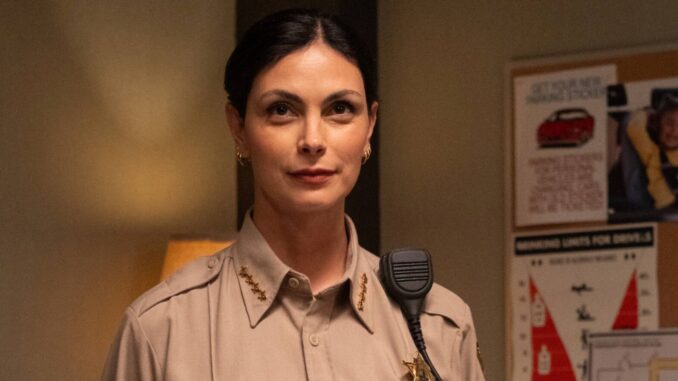
The Siren Song of Power: Why the Age-Gap Romance in ‘Sheriff Country’ Rings Alarm Bells
“Sheriff Country,” whatever fictional landscape it occupies, seems to have unearthed a deeply uncomfortable trope: the age-gap romance. While age is just a number, as the saying goes, the chasm of years can often mask a more insidious undercurrent, particularly when coupled with imbalances of power. The red flags raised by this particular dynamic, MD11 notwithstanding, are not simply about societal disapproval of older-man/younger-woman pairings. They are about the potential for exploitation, manipulation, and the perpetuation of harmful stereotypes that demand closer scrutiny.
One immediate red flag is the inherent power dynamic. In a sheriff-centered narrative, the sheriff is not merely older; he is an authority figure, imbued with significant control over the community, potentially including the younger partner. This position of power, regardless of the sheriff’s intentions, can create an uneven playing field. The younger partner might feel obligated to appease, fearful of challenging, or even attracted to the perceived security and status offered by their partner’s position. This isn’t to suggest malicious intent on the sheriff’s part, but the very structure of their relationship is built upon an existing hierarchy that makes genuine equality challenging, if not impossible, to achieve. Imagine the chilling effect on dissenting opinions if the younger partner works for the sheriff’s department, or even lives within his jurisdiction. Their voice, inherently, is likely to be diminished.
Further amplifying this red flag is the potential for a vast disparity in life experience and maturity. While exceptions always exist, generally speaking, someone significantly older has navigated more of life’s milestones: career development, financial stability, established social circles. This experience can be invaluable, but also leveraged. The older partner might unconsciously, or consciously, dictate the direction of the relationship, subtly steering the younger partner towards decisions that align with their pre-existing life. This can stifle the younger partner’s own growth and prevent them from exploring their own identity independently. The sheriff, perhaps unconsciously, might see the younger partner as a blank slate, a project to mold and shape to their liking, rather than an equal partner with their own agency and aspirations.
Moreover, the depiction of age-gap romances often relies on harmful stereotypes. The older man is often portrayed as providing stability, wisdom, and financial security, while the younger woman is viewed as vibrant, youthful, and seeking protection. These stereotypical roles are deeply problematic. They perpetuate the idea that women need to be rescued and that men need to be validated by the youth and beauty of their partner. Such portrayals erase the individuality of both characters, reducing them to caricatures that reinforce outdated and limiting gender roles. We rarely see nuanced portrayals of the challenges inherent in such relationships, focusing instead on the superficial “opposites attract” narrative.
Finally, the age-gap romance in ‘Sheriff Country,’ especially if romanticized and portrayed without critical examination, can normalize predatory behavior. While a consensual relationship between adults is, legally speaking, permissible, the context matters. A fictional narrative has the power to influence perceptions and normalize potentially harmful power dynamics. By failing to acknowledge the potential for exploitation and manipulation inherent in age-gap relationships, the narrative risks sending a dangerous message, particularly to younger viewers or readers who might be impressionable.
In conclusion, the age-gap romance in ‘Sheriff Country’ raises major red flags not because of age alone, but because of the intricate web of power dynamics, disparities in life experience, reliance on harmful stereotypes, and the potential for normalization of potentially exploitative behaviors. It demands a critical lens, one that moves beyond superficial romance and confronts the uncomfortable realities that often lie beneath the surface. Unless the narrative actively interrogates these complexities, it risks becoming a cautionary tale, not a romantic one, highlighting the dangers of unbalanced power and the importance of prioritizing autonomy and equality in all relationships. The sirens are singing, and we must listen carefully to the warning in their song.

